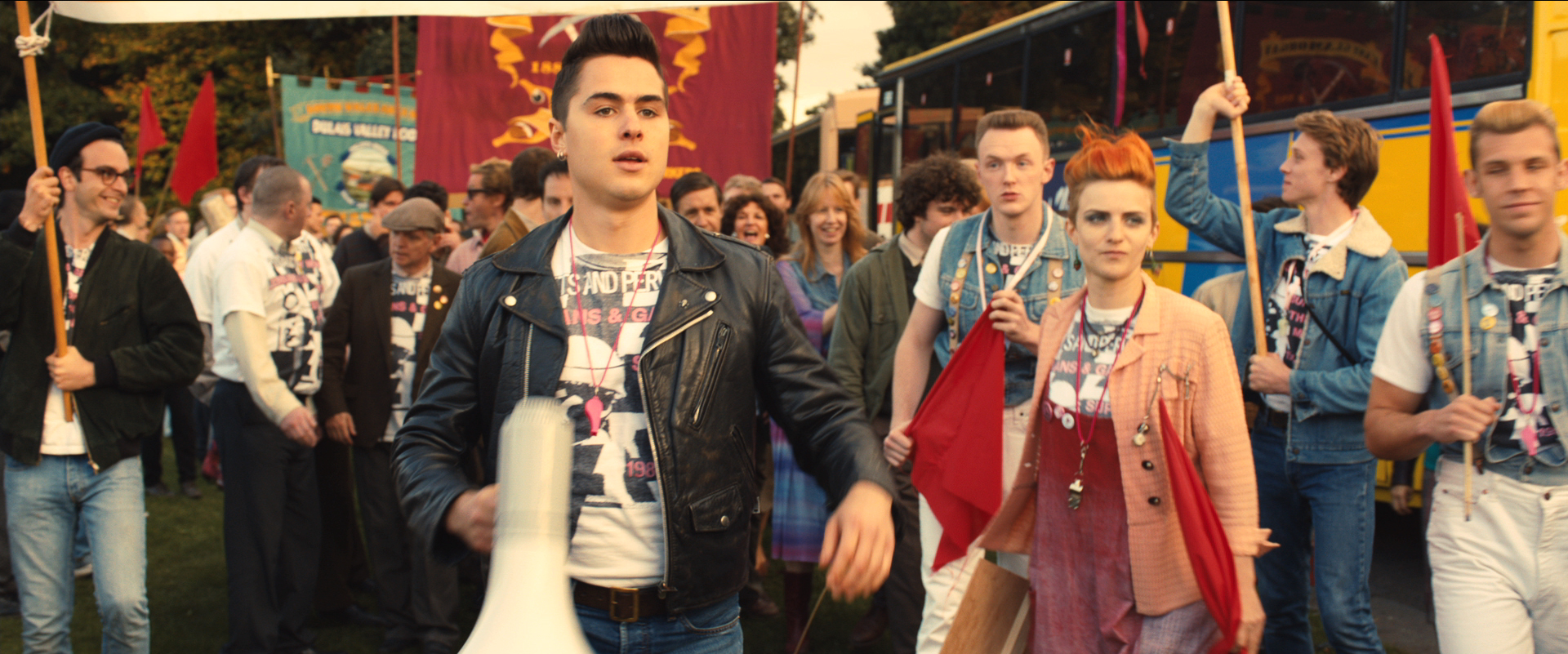The enemy of my enemy is my friend, runs the realpolitik adage, and that’s what motivated Mark Ashton—young, gay, and for several reasons not at all happy about Thatcherism—to begin fundraising in support of UK miners during their bitterly divisive strike of 1984–85. In essence a Clifford Odets play with a Culture Club soundtrack, Pride is based on a true story: how a nascent gay-rights movement made common cause with an also-beleaguered group that might otherwise seem adversarial—men known for, in the words of one memorable Monty Python sketch, “their tough, rugged life hewing the black gold from the uncompromising hell of one mile under.”
It wasn’t an easy sell. One of Mark’s friends, who escaped to London after growing up in a mining town, points out that these are the guys who beat him up daily. And of course not everyone in the Welsh village of Onyllwyn is thrilled to see a lorryful of poofs drive up, no matter how much money they’re bringing. In depicting their thaw, director Matthew Warchus and screenwriter Stephen Beresford push buttons without shame; prepare yourself for grandmas saying startling things adorably, repressed bodies liberated by dance pop, darkest-before-dawn plot twists, and even a buck-up communal sing. (And yes, one Welsh character comes out; see if you can guess who it’ll be.)
Still, you can hardly blame Warchus and Beresford if Pride’s most tearduct-activating moments actually did happen. Their style is more gritty (does the sun ever shine in London?) than campy, more Billy Elliot than Priscilla, Queen of the Desert, and AIDS shadows the exhilarating ending. Watching this improbable slice of British political history, you may be moved to reflect that a little more cooperation and a little less more-aggrieved-than-thou competition among interest groups over the past 30 years might have done the American left a power of good. Opens Fri., Oct. 10 at Harvard Exit. Rated R. 120 minutes.
gborchert@seattleweekly.com







